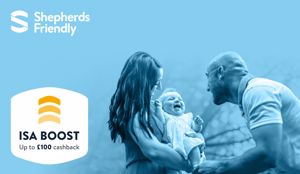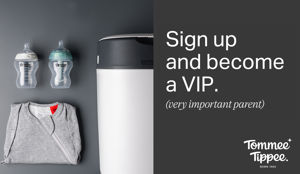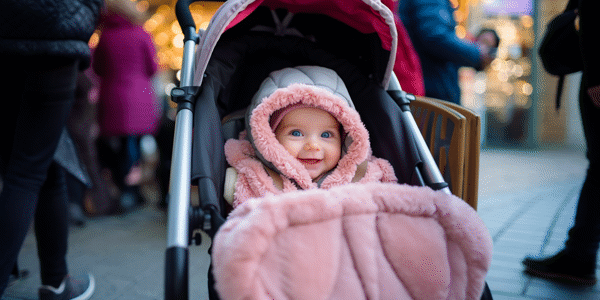Colds are very common and are not usually serious. You can expect your baby to catch up to eight colds in their first year alone.
There’s absolutely no doubt that caring for your baby while they have a cold is tough! Especially if they are extra grouchy and struggling to stay asleep thanks to the stuffiness.
Why Do Babies Get So Many Colds?
The reason our little ones catch so many colds in their first year is that their immune system isn’t yet ready to fight the viruses that cause these illnesses.
Babies will often pick up colds from nursery/childcare settings. They can also catch it from their older siblings who bring the cold virus home from school or from grown-ups who have been in contact with an infected person.
The cold virus spreads via the air when somebody who is infected sneezes and/or coughs. These droplets are expelled through the air and can land on surfaces like toys and tables. When babies touch the surfaces and put their hands in their mouths (which they do A LOT), they give the cold virus an easy route into their bodies.
Signs and Symptoms of a Cold in Babies
Your little one will start to develop symptoms of a cold around 12-72 hours after being infected. Symptoms include:
- A runny nose, which should appear clear at first but may then turn green or yellow.
- Sneezing
- Coughing
- Irritability/fussiness
- Blocked/stuffy nose
- A change of appetite (eating less than usual)
- A fever
- Fatigue
- Diarrhoea/vomiting
- Trouble going to and/or staying asleep
Most baby’s will start to feel better in about five to seven days, but it can take up to two weeks in small children.
Cold Treatment
Colds do not respond to antibiotics because antibiotics are used to kill bacteria - a cold is caused by a virus. Colds usually go away on their own after a few days.
Although there isn’t any over-the-counter medicine available to treat your baby’s cold, there are lots of home remedies you can try to help them feel better.
Home Remedies
Painkillers - If your baby has a fever, pain or discomfort, you can use infant paracetamol and infant ibuprofen to help make your baby more comfortable. Your baby can have infant paracetamol from two months old if they were born after 37 weeks and weigh more than 9lb (4kg). They can have ibuprofen if they are three months or older and weigh at least 11lb (5kg).
(Important - Children under six should not be given any over-the-counter cough or cold remedies, including decongestants unless advised by a pharmacist or a GP)
Extra fluids - make sure your baby is drinking plenty. In babies over six months, you can also offer water.
Saline nose drops/spray - If your baby is having trouble breathing through a stuffy nose, saline nose drops can help loosen dried mucous/snot and relieve congestion.
Vapour rub - vapour rub can be applied to your little one's back and chest to help ease congestion. Never apply vapour rub to their nostrils.
Use a humidifier - a humidifier adds moisture to the air, which can help stop your baby’s nose from drying out. If using one, ensure you wash out the machine after each use to prevent mould and bacteria buildup.
How To Help Prevent a Cold
It’s not possible to prevent every cold, especially during the winter months when cold viruses are rife. But there are things you can do to lower the risk of your baby catching a cold:
- Encourage the whole family to wash their hands regularly to stop the cold from spreading.
- Ask those who would like to hold your baby to wash their hands before picking them up.
- Ask anybody who may be getting sick or those who are sick to only visit once they are feeling better.
- Keep your little one away from places that are crowded.
- Clean your baby’s toys regularly with soap and water.
- Encourage older children to cough and sneeze into a tissue instead of the air.
For more tips on preventing colds - read our helpful article here!
When Should You Contact a Doctor?
If your baby is under three months, you should take them to the doctor at the first sign of a cold.
No matter how old your little one is, you should call a doctor if you are concerned or notice any of the following symptoms:
- Their cold seems to be getting worse, not better.
- If you notice your little one is having trouble breathing.
- If they are under three months and have a fever of 38 degrees Celsius or higher.
- If they are between three and six months old and have a fever of 39 degrees Celsius or higher.
- If they are showing signs of dehydration- less wet nappies than usual or no wet nappies at all.
- They have a cough that won’t go away.







